Rasulullah salla Allahu ‘alayhi wa sallam (ﷺ) said:
الدُّعَاءُ هُوَ الْعِبَادَةُ
“Du’a is ‘ibadah.”
[At-Tirmidhi 3247 | Graded Sahih by Darussalam]
Du’a is the essence of worship. It is also the weapon of a believer!
But here’s the thing. When it comes to du’a, many of us think that we should put in our best effort first, and then we make du’a. So today, I’m asking you to delete that mindset.
Because du’a comes first. Because Allah subhanahu wa ta'ala is always the focus and priority of a believer. Du’a is never second. In fact, never second-guess when making du’a. Among the common mistakes we often make is thinking that du’a is a weak and an uncertain way for us to attain something.
Know that du’a is our strongest means, our strongest reason to have our hopes and dreams fulfilled. And the more we make du’a and depend on Allah, the stronger our ‘weapon’ becomes (as well as put in our best efforts of course).
Do you remember asking your parents for something that you really wanted? We didn’t exactly point with our finger and said “I want that”, right? There is a proper and respectful way to get our requests across.
And to Allah subhanahu wa ta'ala belongs the best example. When we ask something from Allah, Our Creator and the Rabb of everything, there are also several adaab / etiquettes that one should observe. In this article, we will look at 10 of those etiquettes from the Qur’an and the Sunnah. Let’s begin with the first one:
🟣1. Make du’a with sincere intention for Allah.
Rasulullah ﷺ said: “The reward of deeds depends upon the intention, and every person will get the reward according to what he has intended.” [Sahih Al-Bukhari 54]
Always start with sincere intention before we do anything that is khayr (good). Our intention needs to be checked and corrected constantly, because shaytan will find ways to corrupt or nullify our ‘ibadah. For example, an imam may be inflicted with riya’ (showing off) while he reads his Qunut du’a with his melodious voice. A person supplicating in front of the Ka’bah may also be inflicted with riya’ when he notices someone praising him or taking a video of him. Our intention must always be anchored to lillahi ta’ala.
🟣2. Supplicate with Allah’s Names that are best suited for our du’a.
Allah subhanahu wa ta'ala says in the Qur’an: “And the Most Beautiful Names belong to Allah, so call on Him by them…” [Surah Al-A’raf 7: 180]
Call upon Allah by His Beautiful Names when we make du’a that are best suited with our requests. For example, when we ask for His Forgiveness, then supplicate with Al-Ghafoor, Ar-Raheem (the Most Forgiving, the Most Merciful). Or when we ask for blessings and rizq from Allah, then supplicate in our du’a with Al-Wahhab (the Giver of Gifts), or Ar-Razzaq (the All-Provider).
However, if we do not know or are unsure of the correct meanings of Allah’s Names, then in shaa Allah it is sufficient to supplicate with ‘Allahumma (O Allah)’, ‘Rabbi (my Rabb)’, or ‘Rabbana (our Rabb)’. Many prophetic supplications begin with either one of these three Names of Allah. Alhamdulillah.
🟣3. Praise Allah before mentioning our request.
A lot of us skip this and go straight to our wants and needs - I used to do it too! It is Sunnah to begin our supplications by first praising Allah subhanahu wa ta'ala. In fact, even Surah Al-Fatihah - which is also a du’a - begins with the praises of Allah:
“All the praises and thanks be to Allah, the Rabb of the 'Alamin. The Most Gracious, the Most Merciful. The Only Owner of the Day of Recompense. You (Alone) we worship, and You (Alone) we ask for help.” [Surah Al-Fatihah 1: 2-5]
After praising Allah subhanahu wa ta'ala comes the requests:
“Guide us to the Straight Way. The Way of those on whom You have bestowed Your Grace, not of those who earned Your Anger, nor of those who went astray.” [Surah Al-Fatihah 1: 6-7]
But if we do not know how to praise Allah from the dalil (evidence) in the Qur’an and ahadith in the ‘Arabic language, then in shaa Allah it is sufficient to praise Him subhanahu wa ta'ala in our own language, such as:
“Allahumma, You are my Creator and I am Your servant, You are the One who protects and saves me from all types of calamities, You are the One who gives me life and sustenance, I am weak and always in need of your Rahmah…”
🟣4. Send salawat to Rasulullah ﷺ after praising Allah.
It is recommended to first praise Allah, send salawat to Rasulullah ﷺ, and then express our requests to Allah. There are a number of ways of sending salawat to Rasulullah ﷺ from the Qu’ran and the Sunnah, including ‘Allahumma salli ‘alaa Muhammad’ or ‘Salla Allahu ‘alayhi wa sallam’. Consider the following hadith:
Fadalah ibn ‘Ubayd radhi Allahu ‘anhu narrated: “While Rasulullah (ﷺ) was seated, a man entered and performed salah, and he said: ‘O Allah, forgive me and have mercy upon me.’
Rasulullah (ﷺ) said: You have rushed, o praying person. When you perform salah and then sit, then:
(1) praise Allah with what He is deserving of,
(2) and send salawat upon me,
(3) then call upon Him.” [At-Tirmidhi 3476 | Graded Hasan by Darussalam]
🟣5. Face the Qibla.
There is nothing wrong if a person does not face the Qibla while making du’a, but facing the Qibla when supplicating is a Sunnah of Rasulullah ﷺ. ‘Umar ibn Al-Khattab radhi Allahu ‘anhu said:
“When it was the day on which the Battle of Badr was fought, Rasulullah (ﷺ) cast a glance at the disbelievers, who were 1,000 in numbers, while his own Companions were 319 men. The Prophet (ﷺ) turned (his face) towards the Qibla. Then he (raised and) stretched his hands, and began his supplication to his Rabb…” [Sahih Muslim 1763]
🟣6. Raise both hands when supplicating.
From the previous hadith, we also learn that Rasulullah ﷺ raised both of his hands when making du’a. Consider also this beautiful hadith:
Rasulullah ﷺ said: “Verily, Allah is conscientious and generous. He would be shy to turn away empty the hands of His servant when he raises them to Him.” [Sunan Abi Dawud 1488 | Graded Sahih by Al-Albani]
When a person asks and begs Allah, Allah subhanahu wa ta'ala is shy to turn away from him empty-handed - subhana Allah! This is because Allah is Al-Kareem (the Most Generous, Abundant in Good), Ar-Rahman, Ar-Raheem. His Attributes are the absolute good, beautiful and eternally free from imperfection.
🟣7. Be attentive when making du’a, with conviction that it will be answered.
Do not think of other matters while making du’a, but ask Allah earnestly, determinedly, with khushoo’ (concentration), and an attentive heart. Have full conviction that our du’a will be answered!
Rasulullah ﷺ said: “None of you should say: ‘O Allah, forgive me if You wish.’ ‘O Allah, be merciful to me if You wish.’ but he should always appeal to Allah with determination, for nobody can force Allah to do something against His Will.” [Sahih Al-Bukhari 6339]
Brothers and sisters in Islam, don’t feel skeptical when making du’a. Don’t think or say: “I’ll make du’a about it, who knows, maybe it will be granted”. Du’a is not trial and error. When we ask Allah - be confident!
Allah subhanahu wa ta'ala said in a hadith Qudsi: “I am just as My servant thinks I am (i.e. I will do for him what he thinks I can do for him)...” [Sahih Al-Bukhari 7405]
This hadith is referring to our own yaqeen (conviction) about Allah subhanahu wa ta'ala. If we think that Allah will not grant our du’a, will not help us, then Allah will treat us as such. So always think well of Allah, as well as always repent for our sins. Rasulullah ﷺ said:
“There is no Muslim who calls upon Allah, without sin or cutting family ties, but that Allah will give him one of three answers:
(1) He will quickly fulfill his supplication,
(2) He will store it for him in the Hereafter,
(3) or He will divert an evil from him similar to it.” [Musnad Ahmad 11133 | Graded Sahih by Sheikh Al-Albani]
Rasulullah ﷺ, through the revelation from Allah, promised those who make tawbah and uphold family ties that their supplications will be answered, and that Allah will answer their du’a as how He subhanahu wa ta'ala deems best. So even if we think our du’a is not answered, then know for sure that Allah will either grant something that is far better for our akhirah, or that He diverts us from a calamity by virtue of our du’a. Alhamdulillah ‘alaa kulli hal (all praise and thanks to Allah in all matters)!
🟣8. Supplicate with humbleness and humility, with a soft voice.
Unless we’re calling for the adzan, doing the talbiyah for Hajj, or the ‘Eid takbeer, don’t raise our voice while supplicating. A soft voice while making du’a shows reverence to Allah. Allah says: “Invoke your Rabb with humility and in secret (with a soft, low voice). He likes not the aggressors.” [Surah Al-A’raf 7: 55]
In regard to this ayah, there was one time when the people raised their voices with supplications. Rasulullah ﷺ admonished them, by saying:
“O people! Be merciful to yourselves (i.e. don't raise your voice), for you are not calling a deaf or an absent one, but One Who is with you, no doubt He is All-Hearer, ever Near (by His Knowledge).” [Sahih Al-Bukhari 2992]
🟣9. Repeat the du’a three times.
Ibn Mas’ud radhi Allahu ‘anhu reported that when Rasulullah ﷺ supplicated, he would supplicate three times, and when he would ask Allah, he would ask three times. [Sahih Muslim 1794]
🟣10. Avoid supplicating bad / evil things for ourselves, children, and properties.
Rasulullah ﷺ said: “Do not supplicate against yourselves, do not supplicate against your children, and do not supplicate against your wealth, lest it coincide with a time in which Allah is asked and He gives and your supplication is answered.” [Sahih Muslim 3014]
In our anger or desperation, never ever say things like “I’m doomed!”, nor should we say negative things to our children such as “May Allah punish you!”, or say something evil about our wealth, such as “My business is ruined!”, for Rasulullah ﷺ mentioned that there are times in which Allah will grant our supplications. So make du’a that is khayr for our dunya and akhirah. Our Deen teaches us to say what is good or remain silent.
Alhamdulillah, these are some of the etiquettes when supplicating to Allah subhanahu wa ta'ala. It goes without saying that we should put in our best effort as well, because ikhtiar is part of our tawakkul on Allah. Rasulullah ﷺ was asked:
“O Rasulullah, shall I tie it and rely (upon Allah), or leave it loose and rely (upon Allah)?” He ﷺ said: “Tie it, and rely (upon Allah).” [At-Tirmidhi 2517 | Graded Hasan by Darussalam]
So supplicate to Allah while taking all the necessary and permissible means.
May Allah facilitate our affairs, grant us hidayah and tawfiq into making supplications that are good for our Deen, dunya, and akhirah. We seek refuge with Allah from supplications that are not answered. Ameen.
— Aida Msr 🌸
References:
- Tafsir Ibn Kathir
- IslamQA
- Sunnah.com
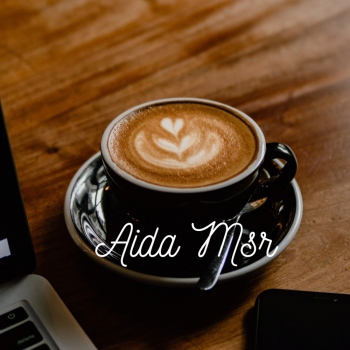 Aida Masuri Mustafa
Aida Masuri Mustafa 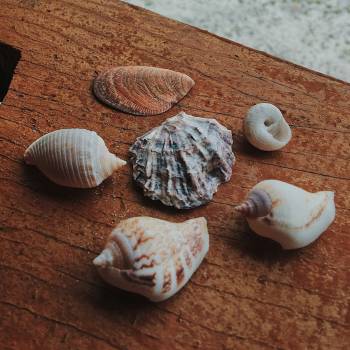
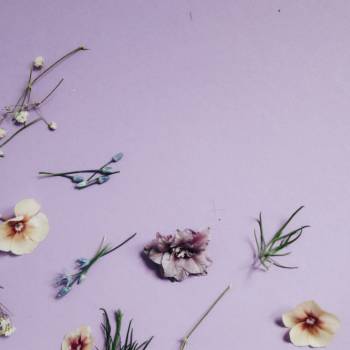
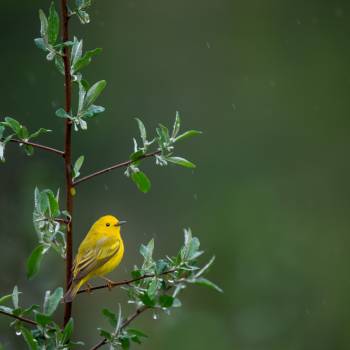

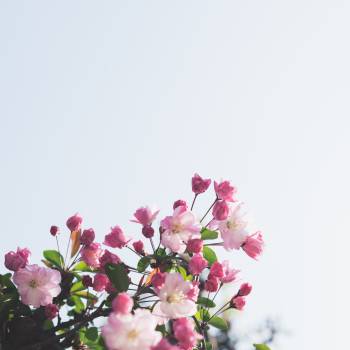

Ira Syatira
Aida Masuri Mustafa